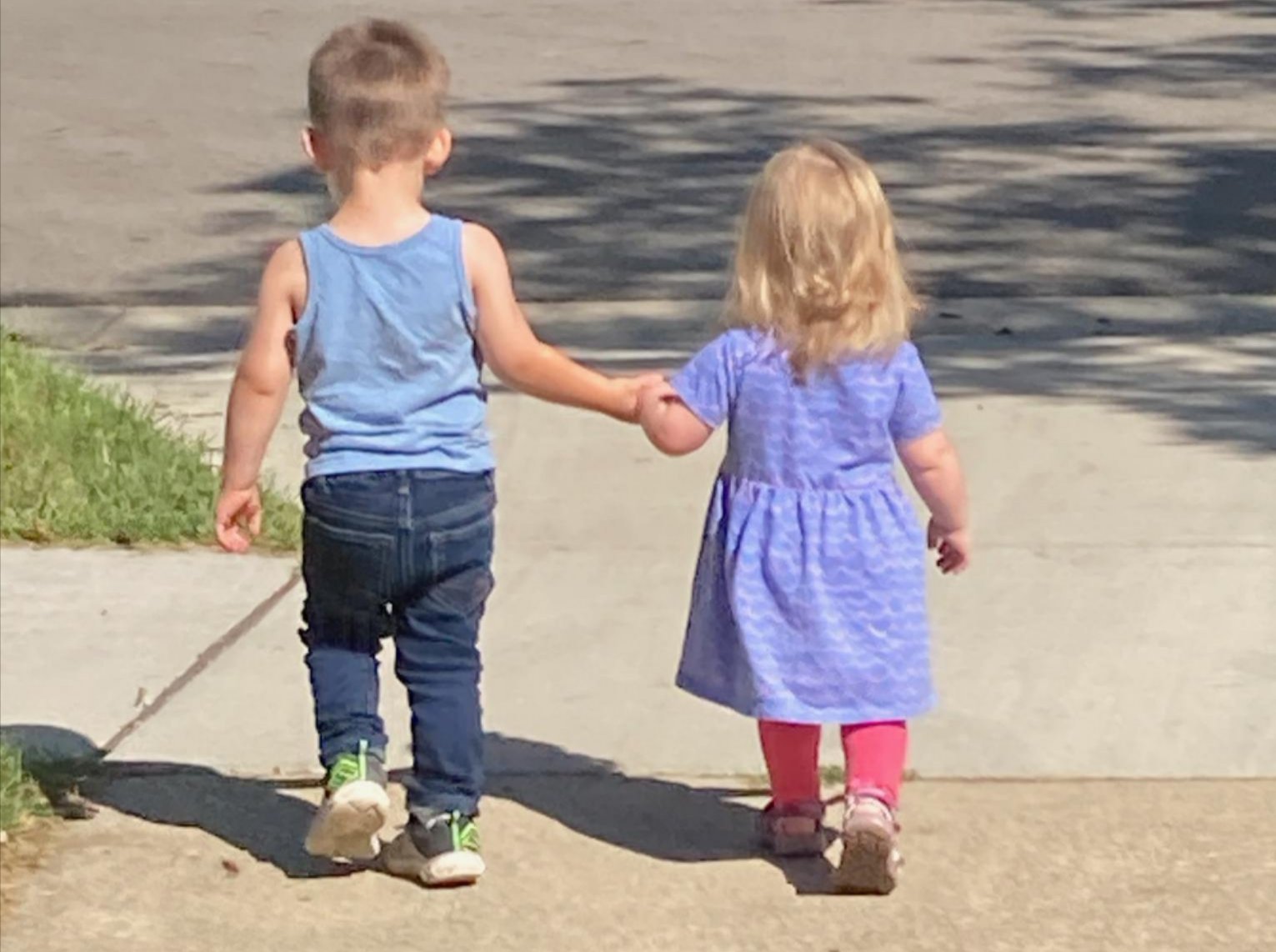Pictured above, Jessica’s two foster children.
The Smallest Details Make the Biggest Difference
Foster family of two flourishes thanks to your support.
“My daughter would wake up from sleep and not make a sound or move until I came in to pick her up,” said Jessica, foster mother of two. “There is no way to tell how long she had been doing this, but I started losing sleep thinking about my daughter laying in her crib not making any noise to alert me to her waking up. I would sleep in her room on the floor to make sure I was there for her. I wanted to immediately put in a camera system so I could monitor her closer, but due to the fact that I am a foster parent, I needed an exemption that I couldn’t get without help. I would call out to my daughter, saying her name to get her attention and she would respond sometimes, but never make eye contact with me.”
These are classic signs of avoidment attachment, and Jessica, started noticing them in in her 5 month old foster daughter.Thankfully, Jessica is familiar with Highfields because she used to work there as a Home-Based Clinician. Jessica reached out and started the process to find her daughter the resources she needed to succeed. Highfields referred her to Heather Church, Home-Based Clinician, to work with the family and the daughter individually. As time progressed, Jessica realized that her son was also displaying signs of speech delays and requested services for him as well. Heather then also began working with Jessica’s 19 month old foster son.
“I do not know what would have happened or where I would be if it were not for Highfields and Heather,” said Jessica.
After well over half of a year of working diligently, Heather and Jessica started seeing progress in both of the children’s development. Heather wrote a letter of recommendation to the foster case worker associated with Jessica’s children, and Jessica received approval to install a camera system in her daughter’s room for peace of mind.
Through all of the ups and downs, Jessica and her children persevered. Jessica and Heather monitored the kid’s mental health down to each small detail, noticing triggers for relapses that occurred during the family’s treatment with the biological mother. Jessica beams with pride when she sees her children working hard and developing skills that they previously had trouble with.
After over 7 months, her children were re-tested using the DECA developmental scale, which stands for the Devereux Early Childhood Assessment Program. The DECA scale is a standardized, norm-referenced behavior rating scale for children ages two to five evaluates the frequency of 27 positive behaviors related to three protective factors: attachment, self-control, and initiative. Both children scored at or above the level that they were meant to be at.
Highfields changes lives through our workers and the donations made by our community. Highfields is proud of Jessica and her family, and values Heather and the work that she does on a daily basis. If you would like to learn more about how to help families in your community, take a look at the employment opportunities available at highfields.org/employment
Do you have a story about Highfields that you would like to share?
Contact Ariel Pontius: apontius@highfields.org
517-512-5783

